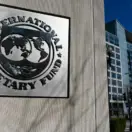By Huma Yusuf
Published in Dawn on November 24, 2025
ANOTHER COP, another blow to the planet. The annual UN conference increasingly seems a ritual designed to accept planetary demise rather than an opportunity to course-correct. For Pakistan, this year’s COP has highlighted the challenges of juggling realpolitik with managing the increasingly terrifying impacts of the climate crisis. In this context, our state’s long-honed capacity for cognitive dissonance serves it well.
Pakistan at COP speaks on behalf of the Vulnerable 20 (V20) group of countries disproportionately affected by climate change; usually aligns with the Like-Minded Developing Countries that call for differentiated responsibilities for states in terms of taking responsibility for and tackling climate change, and is formally part of the G77 and China group, which calls for climate justice, but increasingly in the context of economic opportunity and technology transfer. Navigating these overlapping allegiances just about works. But from a foreign policy perspective, Pakistan’s challenges at COP stem from the fact that its critical patron states have divergent positions on the climate crisis.
In the US, President Donald Trump has declared climate change to be the “greatest con job ever” and withdrawn America from the Paris Climate Agreement. Instead, he is betting on AI and cryptocurrencies, which require water-depleting and earth-warming energy supplies at volumes that do not square with climate adaptation and mitigation efforts.
Saudi Arabia, with whom Pakistan has managed a defence-focused reset, is leading the charge to defang COP agreements, pushing this past fortnight to ensure that the commitment to phase out fossil fuels is not even mentioned. For China, on the other hand, its progressive stance on climate change, particularly in comparison with the US, has become a calling card. Beijing sees its (relative) environmental evangelism as a pitch for global leadership and an opportunity to claim the moral high ground vis-à-vis hypocritical Western countries. Most importantly, climate mitigation is a major economic opportunity as Chinese EVs, batteries, solar panels and wind turbines enjoy a near monopoly in global supply chains for the renewable and e-mobility sectors. China showed up in force at this year’s COP, pushing for open green trade as the way forward.
What is Islamabad to do when it comes to COP?
Moving between Washington, Riyadh and Beijing, and oscillating between offering up environmentally unfriendly mines, cryptomining capacity and defence production facilities, and dealing with climate-induced national disasters, what is Islamabad to do when it comes to COP?
No matter the advantages of reviving close ties with Washington and Riyadh, Pakistan cannot deny that it is a victim of the climate crisis. The Climate Risk Index 2026 retains it on the list of the 20 most affected countries in terms of the economic and human toll of the climate crisis (taking a 30-year view from 1995-2024).
In another demonstration of our growing foreign policy prowess (or is it cynicism?), we have found a balance. At COP30, we have focused on demands for more adaptation finance (read: damage the planet if you must, but help us pay for the collateral damage). This aligns with a key theme of this year’s COP, which was an ask by developing nations and emerging economies to triple adaptation finance commitments from $40 billion to $120bn. This still falls short of the global need of between $210bn and $360bn annually, which is immense and growing. But it represents a sizeable shift from the COP29 ask of $300bn in climate finance commitments overall (including adaptation, resilience and mitigation) by developed nations by 2035.
No doubt Pakistan needs adaptation finance to help its communities and ecosystems adapt to the harsh realities of a world that will warm by two degrees above pre-industrial temperatures. This financing supports everything from climate disaster-resilient infrastructure to the health systems needed to respond to the epidemics that will be unleashed by climate shifts. But while demanding adaptation finance, Pakistan should heed the warnings of activists who point out that the conditionalities attached to such financing test the bounds of national sovereignty (for example, by enabling external actors to guide a nation’s planning for food security).
There is also concern that as climate justice is repositioned as an economic opportunity for some, climate-vulnerable countries will find themselves reframed as key markets for green products, at risk of being trapped in further debt cycles linked to green transition. The intersection of politicking and climate change responsiveness presents as many perils as opportunities; let’s hope Pakistan can find a way to deftly navigate these.




